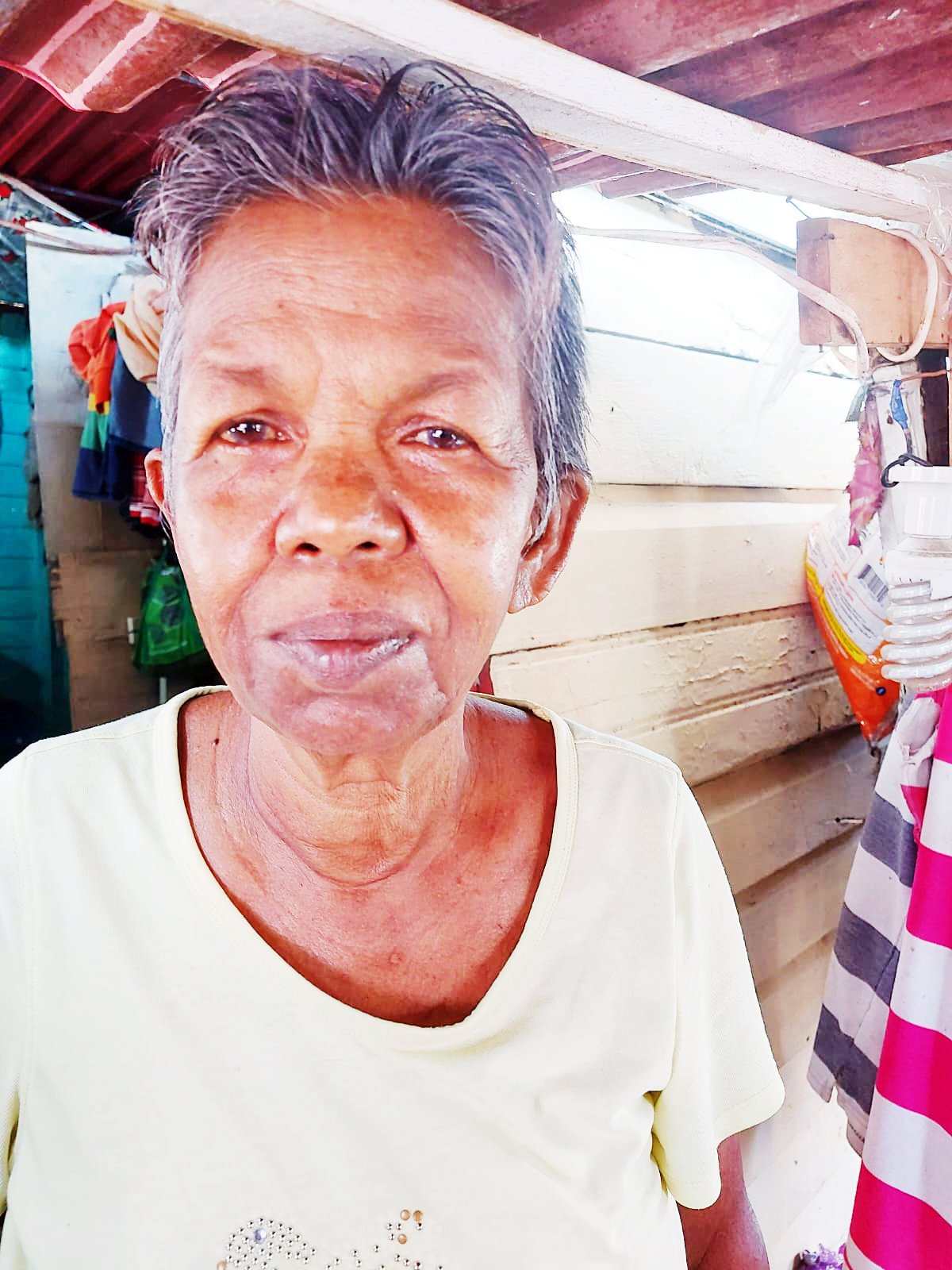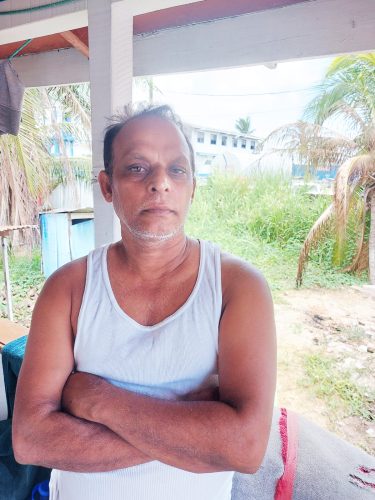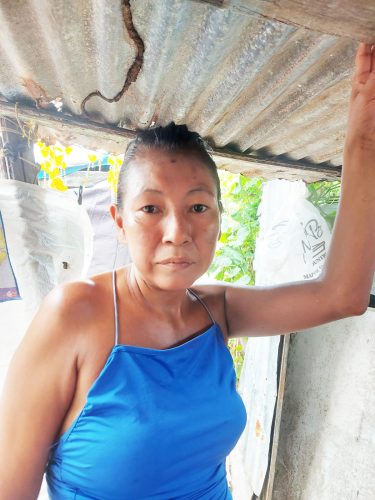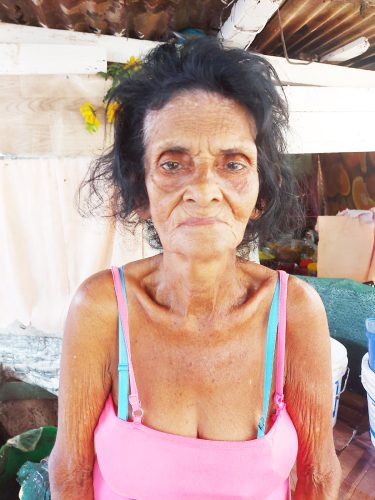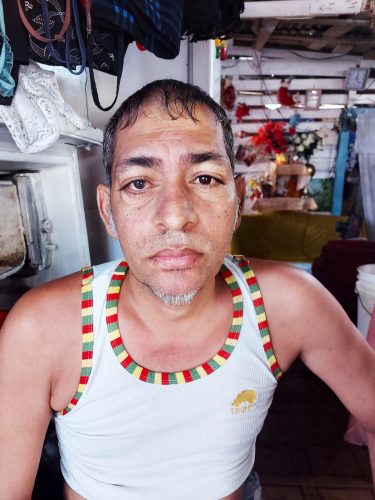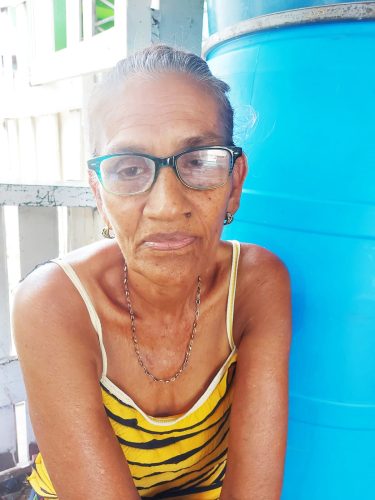Part 74
Stabroek News spoke to members of the public in Riverview, Georgetown about the rising cost of living and how it is affecting them. The following are their comments:
Marlyn Jaisingh, a 50-year-old housewife said: “The cost of living is not affecting me a lot because only one child lives with my husband and I. My husband is the sole breadwinner of the family. Other relatives from overseas would usually help us out by sending stuff for us. But still, the cost of living is not easy because I have my daughter’s UG fees to pay every month, then we have a mortgage to pay and other items to pay off. My husband works as a teacher and his salary is not increasing, but the prices for items are high in the markets. Indeed, the cost of living is high. Only because I do not have a lot of children, I am not complaining about the cost of living. My family and I try to cope with the cost of living by budgeting, assistance from relatives overseas and my husband providing lessons in the afternoon to children. For example, a big bottle Wesson oil a couple months back cost $3,000; now the oil cost $5,500. Before 6 roots of pak-choi cost $300; now I’m buying 3 roots of pak-choi for $500. A pack of carrots before cost $300; now a pack of carrots cost $700-$800. Since COVID-19 prices for items have gone up and there hasn’t been any vast increase of people’s salary. Even the cost for electricity has increase. I think the government should consider increasing public servants’ salary more and reduce the cost of living.”
Immanuel Jaisingh said: “I think the only thing that is different now is the prices for items at the shop. The problems are the prices commodity are sold for at the shop/markets since people around here would buy retail and in large quantities from the shop. The retail cost I think is expensive to the average person. I don’t think our threshold is enough for us to survive because some people around here pay rent. I don’t have a child but with rent and having a family, a lot of people in this community are struggling just to make ends meet. I’m coping well because I’m single and I have a good job. I live alone; so, I’m fine. I think the main problem people are facing is the rise in prices of things that are necessity like rice, flour, sugar, oil; things that you need every day. The cost of things in the markets as well are expensive. Before I could have gone to the market with $5,000; now I can’t because the money is not enough to buy fruits and vegetables. For example, sometime in October-September of last year, the cost for a 10 kg cylinder cooking gas cost $3,800/$3,900; now the gas cost $4,800. Also, a big pack Milex milk cost $1,000 before; now the milk cost $1,480. I think consumers’ affairs should attack the issue of these high prices the middlemen place on their mark up from a manufacturer’s point of view or maybe a farmer’s point of view, then we will have a better rate.”
Kemraj Panchan, a 55-year-old fish vendor said: “The cost of living is affecting me a lot because I’m the only breadwinner for the home. My family of three is trying to cope with the rising cost of living by budgeting because we have to pay the utility bills, internet bill and then we have to purchase grocery items for the home. We have to try to cope with the cost of living; we can’t give up. Sometimes when my family and I go to the market, we can’t afford to buy fruits; we have to cut our eyes. We can’t plant here because the area floods when the rain falls. Things are really expensive in the markets. For example, a 20 lbs cooking gas a couple months back cost $4,500; now the cooking gas cost $4,800. A 1 litre bottle cooking oil before cost $400 and something; now the cooking oil cost $800. Even milk that my child use has increase in the market. A big pack Natura milk a couple months ago cost $500; now the packet milk cost $700. The government should look into the rising cost of living.”
Rebbeca Boodho, a 23-year-old housewife said: “The cost of living is really hard right now. Only my husband is working to provide for my two kids and I. My husband works overtime to get extra money to provide for us. Sometimes I would do part-time hairdressing work to make ends meet. My husband and I try to budget when buying food items because the prices for items in the market have gone up. Sometimes we make sacrifices to buy items for what the children need only when the prices for food items have increased. For example, a couple months back a 10 kg Karibee rice cost $1,500; now the rice cost $2,000. A pound of cabbage a few months cost $300 and something; now the cabbage cost $500. Even the cost for bora has increased. Certain items are produced right in Guyana and the prices are expensive. This is hard for some people on a daily basis. I think the government should do something about this.”
Fay Torres said: “The cost of living is affecting me a lot. My child father is working to provide for my son and I. I’m trying to do a side hustle by selling shrimps to buy things for my child in order for him to go to school. The cost for items has gone up in the market. For example, a pound of sugar before cost $100; now a pound of sugar cost $200. A pound of salt a couple months back cost $60; now a pound of salt cost $100. The cost for a big bundle of bora before cost $200; now a big bundle bora cost $500 in the market. A seller told me that everything has risen in the market, so she had no choice but to raise the cost for her items too. I would like some kind of help with the rising cost of living.”
Michelle Russel said: The cost of living is really hard for me because only my husband works and try to help support my family of four. Sometimes relatives help us out. I have a brother that is disable and can’t work and my mother receives her monthly pension. I’m not working anywhere. Whatever money we have, we try to pay the utility bills and buy groceries for the home. It is really hard for us. For example, a pound of sugar a couple months back cost $160; now the sugar cost $200. A pack of chowmein before cost $300; now the chowmein cost $360. My husband’s salary is not increasing. The government should work on reducing the cost of living.”
Merlene Mooto, a pensioner said: “The cost of living is hard on me because apart from my son-in-law supporting us in whatever way he can, I have a son that doesn’t work because he’s disable and my pension would have to buy things for the home. I also have to pay the utility bills and so. When I receive my monthly pension, I would buy a lump sum of groceries to last throughout the month. Everything gets hard because the cost for all items have increased in the market. For example, A 10 kg Karbiee rice a couple months ago cost $2,000; now the rice cost $2,200. I would buy a gallon of kero which cost about $5,000 to last for a month; before the cost for kero was cheaper. A pint of kero before cost $160; now a pint of kero cost $180. The government should consider increasing people’s salary more or work to reduce the cost of living more.”
Richard Russell said: “The cost of living is affecting me a lot because I’m not working anywhere and my mother helps support me along with my brother-in-law. His salary is small but whatever he has, he helps me. He gave me about $5,000 when he can. For eight years now I’m disable and I’m at home because I got sick. My family of four try to cope with the cost of living by budgeting since the cost for everything has increase in the market. For example, A pound of ochro a couple months back cost $300; my mother bought 6 ochroes for $300 recently. Before we used to get a good portion of Karila for $300; now about 4/5 karila cost $400. The government should consider reducing the cost for food items because not everyone can afford it, especially the person that can’t work.”
Bhojprabha Seepersaud, a pensioner said: “The cost of living is hard for me as a pensioner. When I finished paying water rates and the phone bill, I’m left with nothing much to buy groceries to last me through the month. My husband, three of my grandchildren and I live together. The children attend school. My husband and I support them with our pension. Sometimes we receive help from relatives. The cost for everything just going up in the market. Things are really hard on us. For example, a 10 kg Karibee rice before cost $2,100; now the rice cost $2,300. Before three boulanger cost $300; now the same amount of boulanger cost $500. Even the prices for oil and kero have increased in the market. The cost of living is very high for poor people. The government should do something to reduce the cost of living. Also, several years ago the government said they will clear the main drain at the back of Riverview, but until now that is not done. When the rain falls, we get flood here. The government should do something about this. Also, I would like the government to consider building an overhead crossing for children in the area of Riverview because a lot of children lost their life on the public road when trying to cross the road.”
Lynette Singh, a pensioner said: “The cost of living is hard for me and my husband. I’m a pensioner. My husband works as a fisherman to support the home because the cost of living is high. Both of us try to cope with the cost of living, not everything we could afford but we try to cope. For example, a small Karibee rice that cost $1,500; now cost $2,100. Before the cost for a big bottle cooking oil was $1,800; now the rice cost $2,500. The government should monitor the way shopkeepers raise the prices for food items. “
